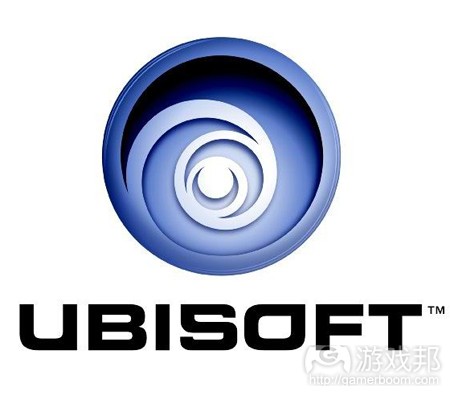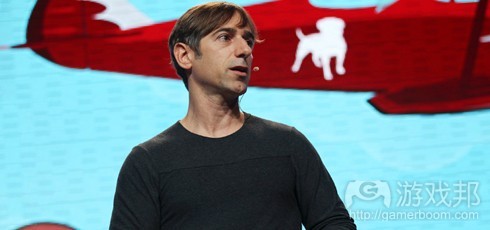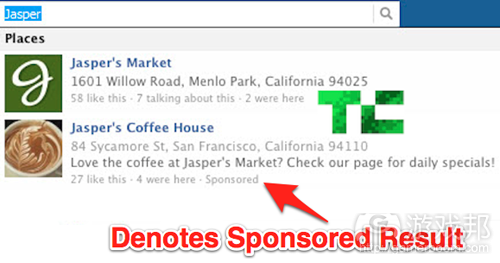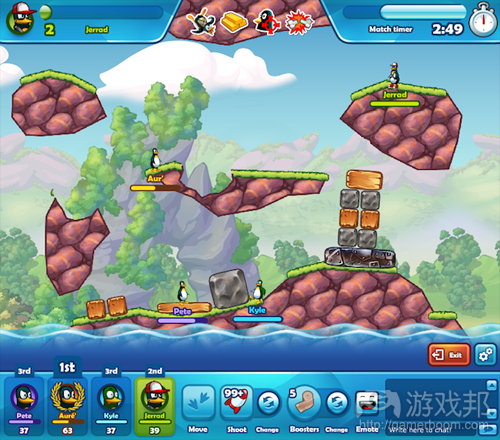每日观察:关注Facebook搜索预输入广告功能(7.20)
1)据gamasutra报道,育碧最近公布第一季度财报显示,公司该时期收益增长至1.31亿欧元(约合1.606亿美元),远超去年同一时期的1.03亿欧元(1.263亿美元),并且超越了原先预期的1.15亿欧元(1.41亿美元)。
育碧在线游戏业务(游戏邦注:其中包括《Howrse》等免费增值游戏,以及《Trials Evolution》等主机数字游戏)销售额增长至2700万欧元(3310万美元),比去年同期增长112%。
育碧在线游戏社区Uplay目前已有3500万注册用户,据该公司所称Uplay的定位是类似于EA平台Origin的数字发行服务。
2)据gamesindustry报道,Zynga创始人及首席执行官在最近采访中表示,他因Jeff Bezos投入亚马逊事业的热情而受到启发,希望将余生精力投入社交游戏领域,同玩家、开发者建立久经时间考虑,并且极具价值的关系。
在提到Zynga未来5-10年的发展走向时,他认为智能手机这种屏幕尺寸较小,注意时间较短,并且用户较少阅读操作指南,但却能够提供深度体验的设备将是Zynga重要发展机遇之一。
3)据Techcrunch报道,Facebook最近正测试一种新型搜索广告Sponsored Results,支持广告主在Facebook搜索特定页面、应用或地点时的预先输入功能中显示广告,此举可能让各个公司相互转移流量。
例如,某家Zynga竞争对手可以在用户搜索“CityVille”时,让自己的游戏广告和《CityVille》同时出现在搜索结果中。观察者认为Sponsored Results将有助于Facebook直接从广告主身上实现大笔收益。
Sponsored Results并非关键字广告,广告主不可瞄准特定“海滩”、“游戏”或“相机”等过于宽泛的字眼做文章,而应针对Facebook平台的特定内容显示广告,这一点类似于广告商根据用户兴趣而在工具条和Sponsored Story中显示相应广告内容。例如,用户只有输入“夏威夷Sandals Resort”、“CityVille”或“尼康相机”时才能在预输入条目中看到相关广告信息。
这种广告内容仅显示在预输入栏目中,不会出现在Facebook搜索结果页面。
4)据insidesocialgames报道,Digital Chocolate最近推出新款Facebook游戏《Crazy Penguin Wars》,该游戏风格类似于Team 17热门游戏《百战天虫》系列(游戏邦注:《百战天虫》社交游戏也将于今年登陆Facebook平台),采用回合制动作策略玩法,支持四名玩家彼此对抗以争夺霸权。
但其游戏结构与《百战天虫》略有不同,每名玩家只能控制一只企鹅与对手过招,在比赛时间结束时获得最高分者即为赢家。目前来看,《Crazy Penguin Wars》不失为一款质量上乘的Facebook游戏,但究竟能否与Team 17的官方版《百战天虫》Facebook游戏一决高下仍然有待观望。
据AppData数据显示,目前该游戏MAU为58万,DAU为6万。(本文为游戏邦/gamerboom.com编译,拒绝任何不保留版权的转载,如需转载请联系:游戏邦)
1)Ubisoft’s online strategy pays off with rising sales
by Eric Caoili
Ubisoft’s increasing focus on digital titles continues to pay off for the company, boosting its sales considerably for the last quarter (ending June 30) and helping the publisher beat its previous guidance.
The Parisian company’s total first-quarter revenues grew to €131 million ($160.6 million), a significant jump from the €103 million ($126.3 million) earned during the same period last year, and much more than the €115 million ($141 million) it initially predicted.
Though poor sales at retail have become worrisome for some publishers, Ubisoft has managed to still find success after its latest big release Ghost Recon Future Soldier performed better than expected, and thanks to continued momentum for its online segment.
The publisher’s online category, which includes free-to-play titles like Howrse and console digital releases like Trials Evolution, saw increased sales to €27 million ($33.1 million), a 112 percent rise compared to the same three-month period in the previous year.
Ubisoft notes that Uplay, an online community for its games, now has 35 million registered users. The company also indicated that it’s positioning the service as a digital distribution service, similar to Electronic Arts’ efforts with Origin.
CEO Yves Guillemot says Ubisoft’s medium-term goals are to capitalize on the next generation of consoles and the free-to-play space. The company predicts that it will generate between $1.16 and $1.2 billion ($1.4 and $1.5 billion) in sales for the current fiscal year ending next March.(source:gamasutra)
2)Zynga CEO Mark Pincus: ‘I’m in this for the rest of my career’
by Joe Osborne
Let that be whatever it means to you: a blessing or a warning, a profession of faith or an omen. The fact is that Zynga founder and CEO Mark Pincus is in this for the long haul, and he has big plans not just for his company, but for the social gaming world on the whole. And judging from his exhaustive interview with GamesIndustry, that’s just the way Pincus thinks now.
“Look, I’m in this for the rest of my career … except I’m in social gaming instead of traditional gaming, and it’s only been five years, but I want to build something, and I want to build these relationships with players, with developers, something that stands the test of time and is really important and valuable,” Pincus told GamesIndustry. “I’m inspired by the way that Jeff Bezos has made that kind of reliable, consistent investment with Amazon, you feel it. There’s just something that’s so rock-solid about Amazon, from 360 degrees it’s rock-solid. It’s become a permanent part of the landscape. I would bet it’s going to be there in ten years.”
With an attitude like that, it’s easy to imagine that Pincus has been thinking this way for far longer. So, what exactly does the CEO have in mind for Zynga in the next five or 10 years?
Mobile, mobile … and more mobile.
“Part of the opportunity for all of us over the next five years is how do we package those up in a way that can fit in this form factor [Pincus points to smartphone] of a very small screen, small attention span, and someone who’s not going to read instructions, not going to do tutorials, and it’s got to have a very, very light, soft on-ramp but have a lot of depth of where that experience can go,” Pincus said. “I think the opportunity is to continue to innovate – it’s a new kind of innovation.” Check the extensive interview in full right here.(source:games)
3)Facebook Begins Testing Sponsored Results, Its First Search Typeahead Ads
Josh Constine
Heads up, Google. Facebook is testing a new format of search ads called Sponsored Results that lets advertisers show ads in the Facebook search typeahead to users looking for a particular Page, app, or Place. It basically will let businesses divert traffic from each other.
For example, a competing game company could target Zynga’s CityVille so anyone searching for “CityVille” would see an ad leading to their game alongside the organic search result leading to Zynga’s game. Sponsored Results could be big for Facebook’s bottom line, pulling in ad dollars from direct advertisers with something to sell.
The Sponsored Results will look just like organic results in the typeahead search box atop every page, except for being marked with a tiny word “Sponsored”. Facebook tells me they’ll be sold on a cost per click basis, can be targeted to people searching for any Page, app, Place, (and possibly event) without that business’ permission, and the tests begin tonight.
Sponsored Results are not keyword ads. Advertisers can’t target something broad like “beach”, “games”, or “cameras”. They have to target a specific entity on Facebook, similar to how brands can currently target users with sidebar and Sponsored Story ads based on a user’s interests. For example, Sponsored Results could be targeted to people searching for “Sandals Resort Hawaii”, “CityVille”, or “Nikon Camera”.
The Sponsored Results will not appear on the full Facebook Search results page, only in the typeahead. Facebook struck a deal years ago with Microsoft to let it place ads at the bottom of the search results page, but now Facebook is taking control and offering a fully-owned platform for search ads.
This new ad format can only direct users to on-Facebook properties, but that includes an on-Page application or a specific Page post. That could let advertisers send users to a Facebook Offer coupon they’re distributing, a contest app they’ve launched, or an email or phone number sign-up widget. It could also help brands team up, to run ads pointing traffic from people searching for them to a joint promotion run with another business they’re partnering with.
Advertisers can target multiple entities that people are searching for at a time. They can also layer on Facebook’s other ads targeting criteria so a news website targeting Sponsored Results to people searching for the “CNN” Page could refine their ads to only be shown to 30-50 year old women in San Francisco who Like Barack Obama.
Advertising To People Ready To Buy
Sponsored Results will appeal to a class of advertisers Facebook doesn’t serve well right now — direct marketers who sell products online or games trying to gain traction. Until now, Facebook was better for less urgent brand advertising because it didn’t offer many ways to reach users after they’ve shown purchase intent — when potential return on investment is highest and most easily measured.
Ads on Facebook’s sidebar for shoes or your company’s latest puzzle game might be ignored because users aren’t interested at the time. Sponsored Results could hit them when they are, just as they’re searching for another shoe brand or game.
Sponsored Results, as well the recently announced but just starting to roll out Facebook Exchange cookie-based retargeted ads, could let Facebook compete with Google sponsored search results and offsite ad networks for dollars. Some might say users on Facebook generally aren’t in the mood to buy things
The ads have the potential to reduce the relevance of results in Facebook’s search typeahead, similar to how Google Sponsored Results ads push down organic results a searcher might actually be looking for. Honestly, I often find out about cool products and events from Facebook’s standard ads because I’ve given the site so much data to target with, but Sponsored Results seem like they could get in the way.
Facebook tells me it will be watching for feedback, though, and stresses that this is just an early test. It’s also difficult to gauge the total presence of these ads, as Facebook doesn’t share the volume of on-site searches users run.
If rolled out, Sponsored Results could open up a huge new revenue stream for Facebook, and make its currently slumping stock price look like more of a bargain. Sponsored Results won’t have generated any significant revenue that impact Facebook’s first earnings report since becoming a public company though, which TechCrunch will be thoroughly covering on July 26th.(source:techcrunch)
4)Crazy Penguin Wars review
Pete Davison
Crazy Penguin Wars is a new Facebook game from Digital Chocolate. The title is heavily inspired by Team 17′s popular Worms series, itself set to arrive on Facebook later this year, and is currently showing up as the No. 20 top gainer by MAU on the social network.
Crazy Penguin Wars is, like Worms, a turn-based action-strategy game in which up to four players compete against one another for supremacy on a destructible landscape. Participants take turns to make use of a selection of physics-based weaponry to battle their opponents while (hopefully) ensuring they don’t damage themselves.
The game structure differs slightly from Worms, which is based on two or more teams of four worms each battling until only one player survives. Crazy Penguin Wars, conversely, sees each player controlling only a single penguin and scoring points for successfully damaging an opponent. When the match timer expires, the player with most points wins. Reducing an opponent’s health to zero provides an additional score bonus to the killing player, but the defeated penguin simply respawns at a random location on the map rather than that player being “out” as in Team 17′s title.
Players always have access to two basic weapons: a physics-based bazooka and a close-quarters punch. Using soft and hard currency, players are able to purchase additional consumable weapons with which to attack their opponents. Some of this weaponry is level-locked, but can be unlocked early through the expenditure of hard currency. Players are also able to purchase “booster” items using soft and hard currency as well as customize their penguin with various clothing items and accessories.
The trouble with Crazy Penguin Wars’ approach to monetization is that it veers perilously close to a “pay to win” scenario, which is rarely popular with highly competitive players. While it is possible for free players to win using only the basic weaponry, it is significantly easier to do so using the premium items — particularly the boosters. This makes the game feel a little unbalanced if free players are competing against those who have paid. It also goes somewhat against the nature of Crazy Penguin Wars’ inspiration Worms, in which player skill, not who has the most weaponry, determines the victor.
Leaving comparisons to Worms aside for a moment, Crazy Penguin Wars is a decent-quality Facebook game, and its synchronous multiplayer mode appears to work well, with plenty of opponents available to compete against. It’s also possible for players to practice against computer-controlled opponents or to set up private matches against friends, though there’s no option for asynchronous play. This isn’t a huge issue due to the fact that Crazy Penguin Wars matches take a couple of minutes at most, but the option would be nice for those who prefer to play in even shorter bursts.
Crazy Penguin Wars is a fun multiplayer game, but the true test of its quality will come when Team 17′s official Facebook take on Worms launches later this year. There’s no firm date on when we can expect this as yet, but once it launches it’s entirely possible current Crazy Penguin Wars players will jump ship to the game that offers “the genuine article,” as it were. For now, though, Crazy Penguin Wars is a good game that makes good use of simultaneous multiplayer — something we’re starting to see a lot more of in social games.
Crazy Penguin Wars currently has 580,000 monthly active users and 60,000 daily active users. Follow its progress with AppData, our traffic tracking service for social games and developers.(source:insidesocialgames)













































